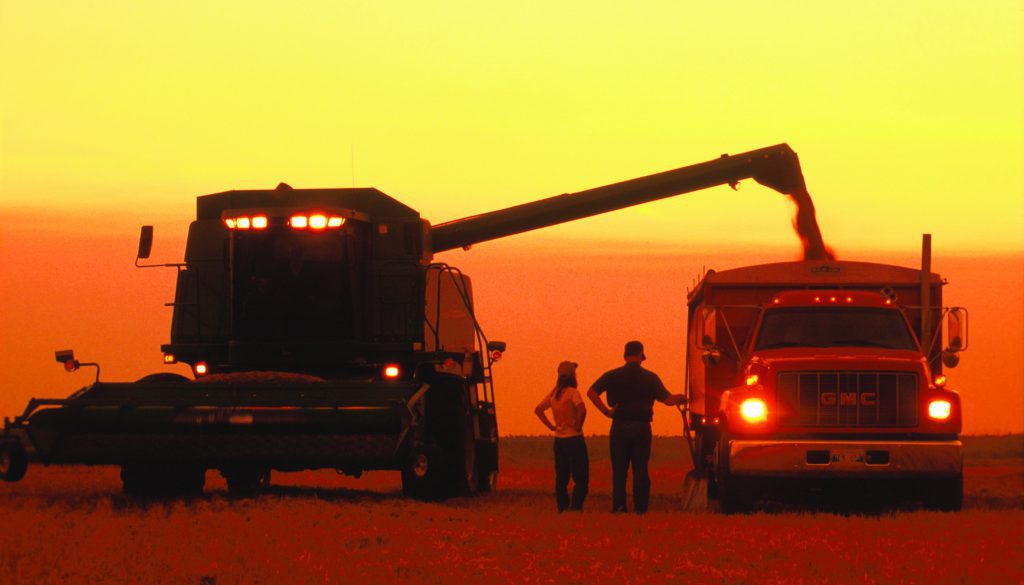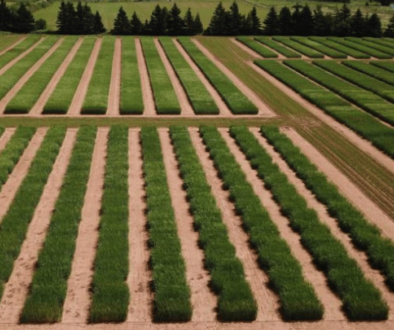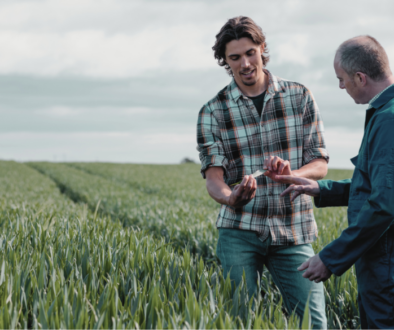Saskatchewan farm organizations advocate for carbon offset system that recognizes and rewards farmers’ contribution
Saskatchewan farm organizations, the Soil Conservation Council of Canada and the Saskatchewan Soil Conservation Association (SSCA) are encouraging farmers to participate in a review of the Government of Canada’s proposed Greenhouse Gas (GHG) Offset Credit System regulations. The proposed regulations are open for a 60‐day comment period from now until May 5, 2021.
A coalition of Saskatchewan farm group representatives are united in ensuring that Saskatchewan farmers are recognized and compensated for carbon sequestered from conservation practices, including zero‐till and continuous cropping. The groups represented include Sask Wheat, SaskCanola, SaskPulse, SaskBarley, SaskFlax, SaskOats, Saskatchewan Association of Rural Municipalities, Agriculture Producers Association of Saskatchewan, the Soil Conservation Council of Canada and the SSCA.
“The carbon sequestered each year by Saskatchewan farmers is a critical asset to help both the federal and provincial governments meet their climate change goals. That value should be recognized and returned to the farmgate,” said Jocelyn Velestuk, a Sask Wheat and SSCA director, and member of the SSCA’s Carbon Advisory Committee. At this critical juncture, the SSCA’s Carbon Advisory Committee is committed to working with the federal and provincial governments to develop a science‐based offset protocol for the sequestration of carbon in agricultural soils. As Support Group Members of the Carbon Advisory Committee, Saskatchewan farm organizations support the Committee’s efforts.
“Each year, through no‐till practices, Saskatchewan farmers sequester about 9‐million new tonnes of carbon dioxide. We are committed to achieving a regulatory environment that recognizes this significant positive impact,” added Velestuk, citing the Government of Saskatchewan’s Prairie Resilience Paper.
While details on what farming and ranching practices will be eligible to earn offset credits through the federal protocols are still being developed, the draft regulations indicate that land‐management practices will have to go above and beyond “business as usual.”
“Even though the federal government has recognized the annual contribution of new and incremental sequestration in agricultural soils, the federal proposal could disqualify the majority of Saskatchewan crop producers from participating in an offset trading system,” explained John Bennett, Chair of the SSCA Carbon Advisory Committee.
The SSCA Carbon Advisory Committee and Support Group Members will continue to advocate for separate regulations for agricultural carbon sink protocols that would not be subject to non‐scientific factors such as “business as usual.”
Any offset program must also include farmer ownership of soil carbon credits, a registry that allows farmers to “bank” their credits, an effective price discovery mechanism, and full transparency of basis costs.
To get involved in the federal consultations visit: https://www.canada.ca/en/environment‐climatechange/services/climate‐change/pricing‐pollution‐how‐it‐will‐work/output‐based‐pricingsystem/federal‐greenhouse‐gas‐offset‐system.html
For more information on the positioning of the SSCA Carbon Advisory Committee and Support Group Members see: https://www.ssca.ca/carbon‐initiative
For more information, contact:
Tanya Craddock, Executive Director
Saskatchewan Soil Conservation Association
306-371-4213 | info@ssca.ca
www.ssca.ca




